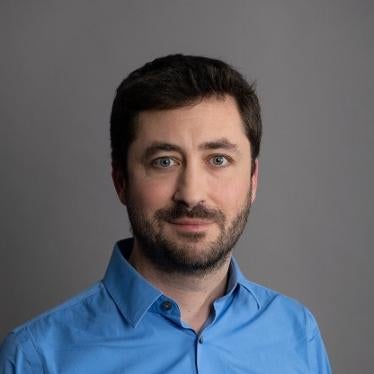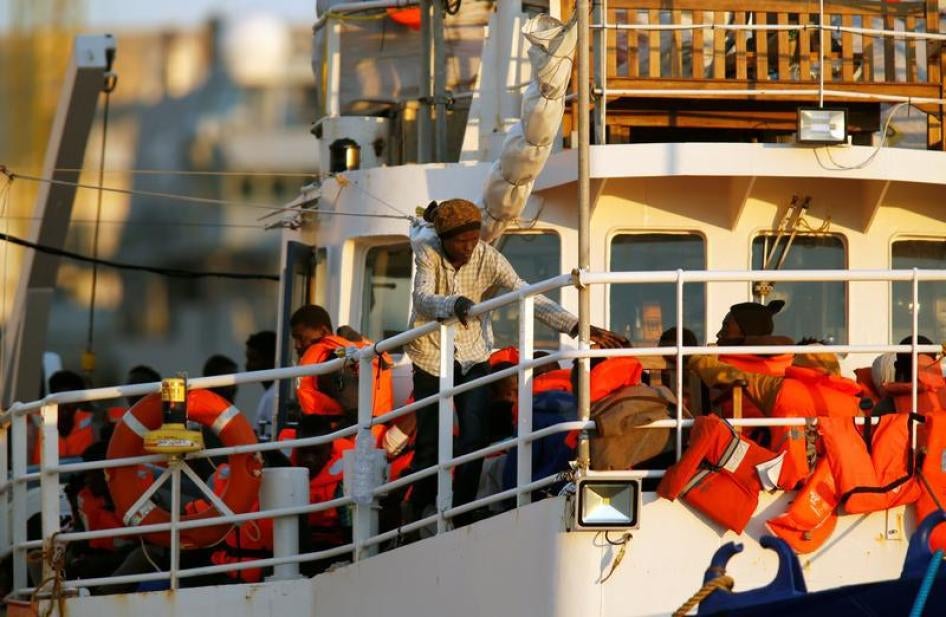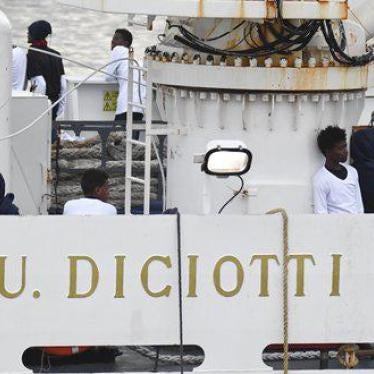Following his meeting with German Chancellor Angela Merkel last week, French President Emmanuel Macron tweeted that he wanted “to make the Mediterranean a chance and not a fear.”
But does he mean Europeans’ fears of foreigners, manipulated by their leaders, or asylum seekers’ fear of death at sea or being returned to detention and torture in Libya? And is the Mediterranean a chance for Europeans to use it as a barrier to keep asylum seekers out or for migrants and asylum seekers to find protection?
While the number of migrant arrivals to Europe is at its lowest since 2014, Italian Interior Minister Matteo Salvini has joined others in fear mongering and fuelling a manufactured crisis around Mediterranean migration. If Macron and Merkel are resolved to end the politics of fear, they should end any ambiguity and focus on practical and humane solutions.
This is what they should recommend at the EU informal summit in Salzburg on 20 September:
First, EU leaders should prioritise saving lives and ensuring more predictable disembarkation.
At least 1,600 people have died or gone missing so far this year, with the UN refugee agency estimating that one out of every 18 who attempt the crossing never make it. Some European leaders criticised the Italian government for virtually closing Italian harbours while at the same time looked the other way. France has not let any rescue boat dock and Germany has yet to translate commitments into actions. It is hard not to see a devastating correlation between the skyrocketing death rate and policies that discourage or actively impede rescues.
Today, only one nongovernmental rescue boat, the Aquarius, is operating in international waters off Libya, and no rescue boat is certain it can disembark rescued migrants. EU leaders cannot expect southern rim countries to take rescued people in while they avoid responsibility.
That means convincing Italy and Malta to allow predictable disembarkation with concrete and dependable pledges by other countries to accept rescued people. If Italy and Malta continue to flout their responsibilities other countries like France and Spain — as it did for the Aquarius in July — should have the courage and magnanimity of spirit to offer their ports.
Second, Merkel and Macron should ensure that any new European reception centres comply with European human rights obligations.
The “controlled centers” proposed during the EU Council in June could be part of that response. But without assurances on standards, such centers could replicate the worst situations in EU “hotspots” on the Greek Islands.
Guarantees are needed for no automatic detention in closed facilities, beyond reasonable time for registration and identification. Children as a rule should never be detained. Any new centres need to avoid overcrowding, provide better protection to vulnerable people, and ensure fair procedures and safeguards against being returned to a country where they would face danger.
Third, EU leaders should commit not to expose migrants and asylum seekers to the hell they face in Libya.
Since 2017, the European Union has spent €266 million on addressing the protection needs of refugees, vulnerable migrants and internally displaced people in Libya and has trained some Libyan Coast Guard forces nominally under the Government of National Accord. Italy has provided some boats and equipment. But EU member states have impeded nongovernmental groups’ rescue operations. People sent back to Libya face automatic detention by abusive prison authorities in filthy, overcrowded detention centers, exposed to torture, exploitation, sexual abuses, and trafficking.
Asylum seekers and migrants Human Rights Watch met in detention centers in western Libya in July described these abuses. By supporting Libyan Coast Guards while ducking their responsibility to save lives, EU states may be aiding or assisting in serious human rights violations. Macron and Merkel should press Libyan authorities to end arbitrary detention and demonstrate significant improvements in conditions and treatment in detention centers. They should also lead the way in resettling refugees and asylum seekers via the UN refugee agency’s evacuation program.
Leaders who see death at sea and inhumane treatment in Libya as the price to pay to reduce arrivals will object, of course. But Merkel and Macron should not let Salvini and Hungarian Prime Minister Viktor Orban hold their vision of a humane migration policy hostage. If Europe wants to break the cycle of fear in the Mediterranean, its leaders should provide the chance for Europe to exercise responsibility and give migrants and asylum seekers a chance for rescue and protection.










